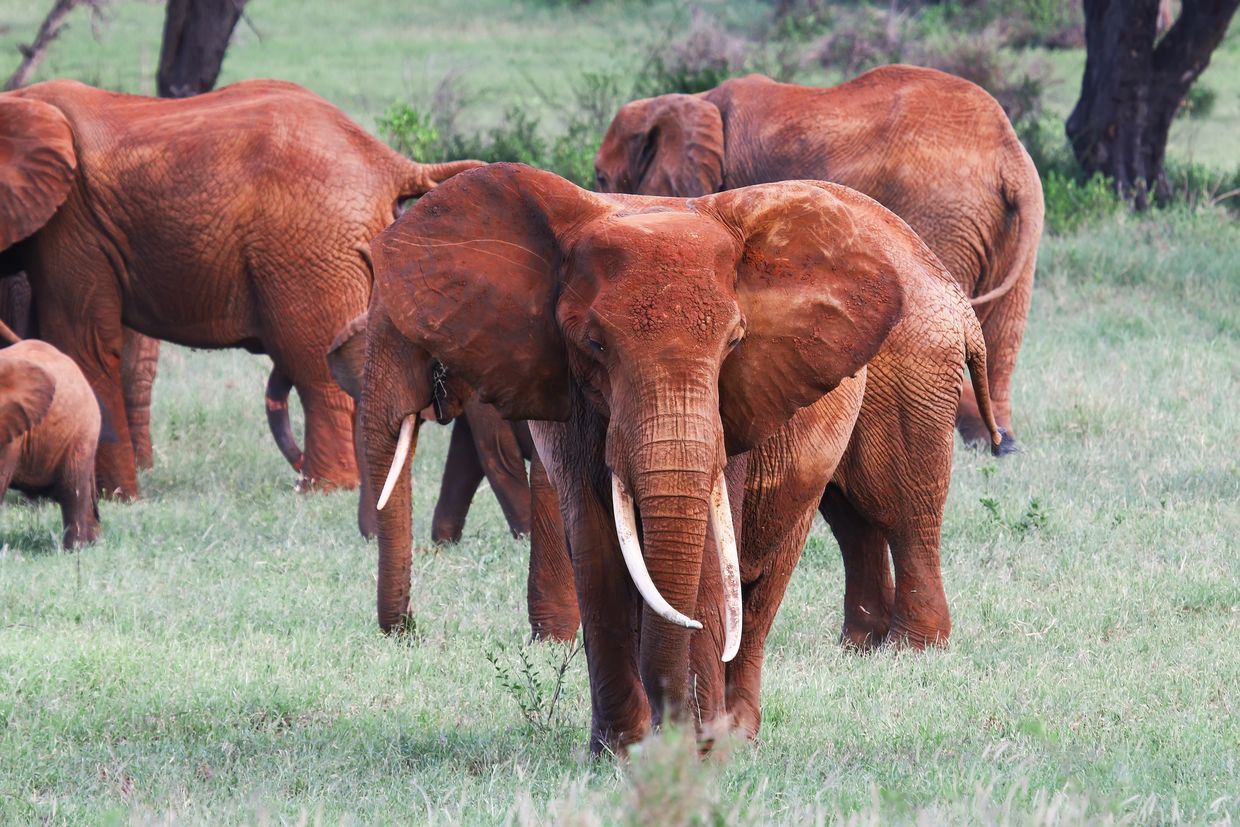
(Art Konovalov / Shutterstock.com)
Elephants, the largest land mammals on the planet, are magnificent creatures and tourists flock to African countries to see them. Due to very successful conservation efforts, the African elephant population in countries like Kenya are growing. In the country’s popular Tsavo National Park, numbers went from around 6,000 elephants to almost 15,000 in 2021, according to Raw Story.
While this is great news for conservationists, it's not seen that way by farmers who live in between two parts of the park. The human population has also expanded and this means encroaching on elephants grazing and migration areas. This has led to clashes that often result in elephant deaths. Now an innovative solution using honeybees has been found to keep the pachyderms away from farms.
Honeybee fences
This unlikely solution is part of a long-running project from the Save the Elephants organization. The humming of the African honeybees deters elephants. Now yellow beehive fences protect some of the local plots, including one owned by Kenyan farmer Charity Mwangome.
“We used to hate elephants a lot,” she told Raw Story. But she believes that the beehive fences rescued her from continuous crop loss.
The project is supporting 40 farmers whose crops are protected by 15 hives. Each of the hives is strung on a wire a few meters off the ground. This protects them from insects but also allows them to shake if disturbed by an elephant, which starts the bees humming. This scares the elephant away.
About the study
A nine-year study, published in the October issue of the journal Conservation Science and Practice found that bee fences deterred elephants 86.3 percent of the time. The study was conducted by Save the Elephants in partnership with the Wildlife Research and Training Institute), Kenya Wildlife Service and the University of Oxford.
The study monitored 26 farms that were protected by the beehive fences in two villages near the park, according to a press release from Oxford University. During the peak growing seasons – November to January from 2014 -2020 – 3,027 elephants approached the fences and most were deterred.
During the drought of 2017, which reduced the number of bees in the hives by 75 percent, elephants were still deterred 76 percent of the time.
“Beehive fences are very effective at reducing up to 86.3 percent of elephant raids when the crops in the farms are at their most attractive, but our results also warn that increased habitat disturbance or more frequent droughts could reduce the effectiveness of this nature-based coexistence method,” Dr Lucy King, who led the study, said in the press release.
Additional benefits
Save the Elephants is now implementing beehive fences in 15 countries in Africa and Asia. But besides deterring elephants, the beehive fences can provide other benefits to communities, reported Mongabay. Bees provide pollination services which can increase crop production and honey from the hives that farmers can sell to supplement their income.
A drawback is that the beehive fences work best in rural areas that have had a culture of beekeeping so they can keep the hives active and producing.
Mwanajuma Kibula, who has a farm in Kenya that is protected by beehives, harvests honey twice a year from her hives, according to Raw Story. She makes 450 shillings per jar. This is enough for her to pay for her children’s education.
While this solution is not perfect, and is subject to the adverse effects of climate change and drought, it does show that elephants and humans can share the land without clashes.
YOU MIGHT ALSO LIKE:
Elephants Call Each Other by Name
Elephants Can Remember Their Human Caregivers
New AI is Protecting Endangered Elephants in Africa







